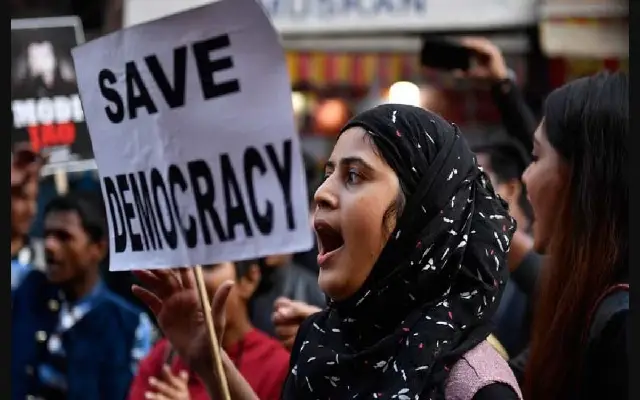Ahead of India’s upcoming elections, a recent research paper from Chatham House raises concerns about the country’s “democratic backsliding” and its potential repercussions for cooperation with the West. Despite India’s improved governance, the paper highlights a shift towards illiberalism and a more assertive deployment of Hindutva in foreign policy, complicating relations with Western nations.
Implications for Western Cooperation
The paper suggests that while Western governments have prioritized concerns regarding China’s political structure, India’s wavering democratic credentials could prompt a reevaluation of cooperation. European nations, particularly influenced by human rights considerations, may be more critical compared to the US, which could be inclined to overlook such concerns.
Allegations of Democratic Erosion
Citing examples of “democratic backsliding,” the paper accuses the Indian government of authoritarian tactics, including control over key institutions like tax authorities, security services, and media. Actions such as tax raids on NGOs and media houses, along with the arrest of opposition figures, raise doubts about India’s commitment to democracy and secularism, particularly if a uniform civil code is introduced under a potential third term for Prime Minister Modi.
Comparison with Past Challenges
Despite these concerns, the paper notes that India’s current democratic challenges are not as severe as those faced during the 1975 Emergency. It suggests that Indian democracy remains resilient, citing the BJP’s struggles in gaining traction in southern state elections as evidence.
Hindutva Agenda in Foreign Policy
The paper expresses apprehension that India’s Hindutva agenda could influence its foreign policy, citing instances such as the use of “Bharat” and vernacular phrases at international forums. While these actions are described as relatively benign compared to China’s assertiveness, a significant escalation of communal tensions or evidence of Hindutva shaping external policies could prompt Western nations to reassess their strategic approach towards India.
Potential Impact on Cooperation
The paper suggests that Western countries might impose limits on deeper cooperation, particularly in sensitive areas like intelligence sharing, if India’s democratic regression continues. However, it notes that in the near term, India’s imperfect democracy still holds more appeal than China’s one-party state for Western partners.
















